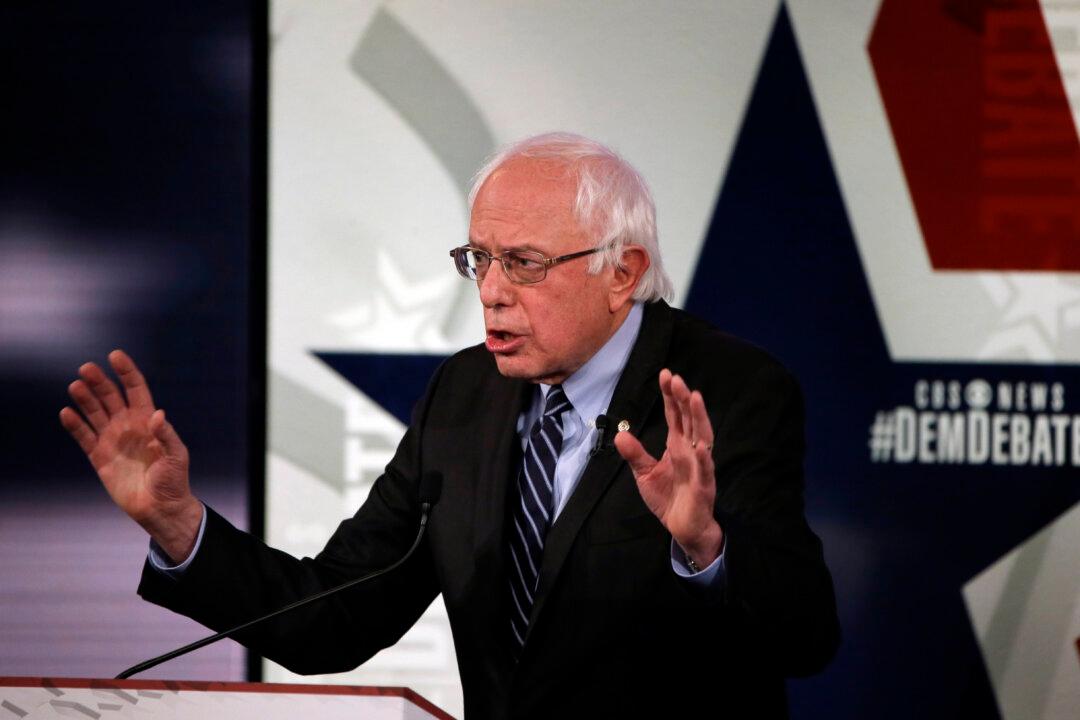WASHINGTON—Bernie Sanders has been putting up major advertising cash to seize momentum heading into the Democratic presidential primaries — outspending his rival Hillary Clinton just as voters are beginning to pay attention to the race.
In the past three weeks, Sanders’ campaign has spent about $4.7 million on ads to Clinton’s $3.7 million, an investment that so far has meant 1,000 more Sanders commercials than Clinton ads on broadcast TV, according to advertising tracker Kantar Media’s CMAG.
The Sanders ad burst is coinciding with his rise in preference polls in Iowa and New Hampshire, the first two states where voters will weigh in on the 2016 election. The Democratic contest appears to be tightening.
Two recent surveys suggest Sanders has gained on Clinton in Iowa. In New Hampshire, one poll showed the Vermont senator ahead of the former first lady and secretary of state by double digits, while another pointed to a tighter race. Iowa votes Feb. 1; New Hampshire, Feb. 9.
Clinton began advertising in August, three months ahead of Sanders, and over the entire contest has outspent him by about $3 million, the CMAG data show. The ad buy data includes all broadcast, cable and satellite television, as well as some radio. It does not include digital ads.
The turnabout in ad spending — with Sanders topping Clinton in each of the past three weeks — prompted the Clinton campaign last week to send an email to supporters with the subject line “nervous.”
“I’m not trying to be dramatic about this (I swear? I’m really not!), but there’s a situation developing in Iowa and New Hampshire that could change the course of this election,” Clinton campaign manager Robby Mook wrote in the fundraising appeal. Later in the same email: “I just found out that he’s outspending us on TV advertising in Iowa and New Hampshire.”
In reality, both candidates have ample financial resources; each campaign said it had raised upward of $30 million in the final three months of the year.
This month, Sanders has aired nine different commercials. Two stand out for their heavy rotation.
His top-played ad of these past few weeks, “Working Families,” has been on some 1,200 times on broadcast stations, according to CMAG data covering Dec. 30 to Tuesday.
There’s nothing splashy or slickly produced about this 30-second commercial. The entire time, it’s footage of Sanders talking at a New Hampshire town hall meeting, delivering his typical remarks with his trademark exaggerated arm gestures.
“The bottom line of this economy is that it is rigged,” he says as people in the rapt audience nod their heads. “What this campaign is about is the demand that we create an economy that works for all of us rather than a handful of billionaires.”
Just behind that ad in frequency is one featuring a registered nurse in Vermont, Mari Cordes.





